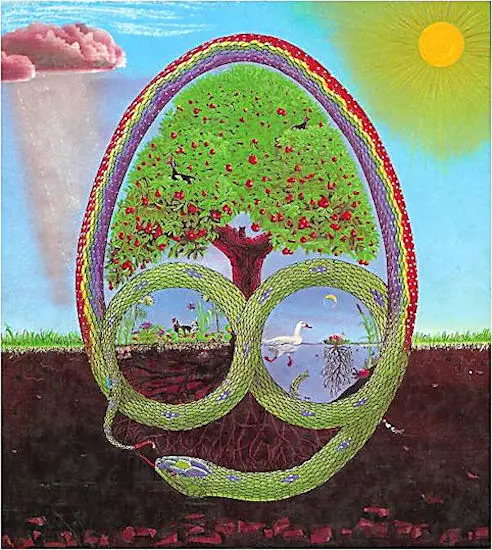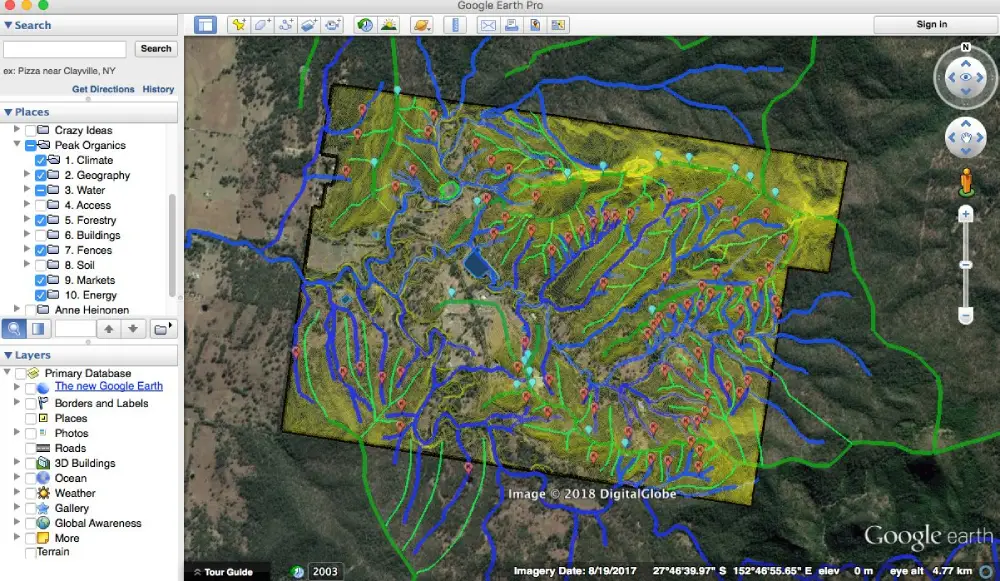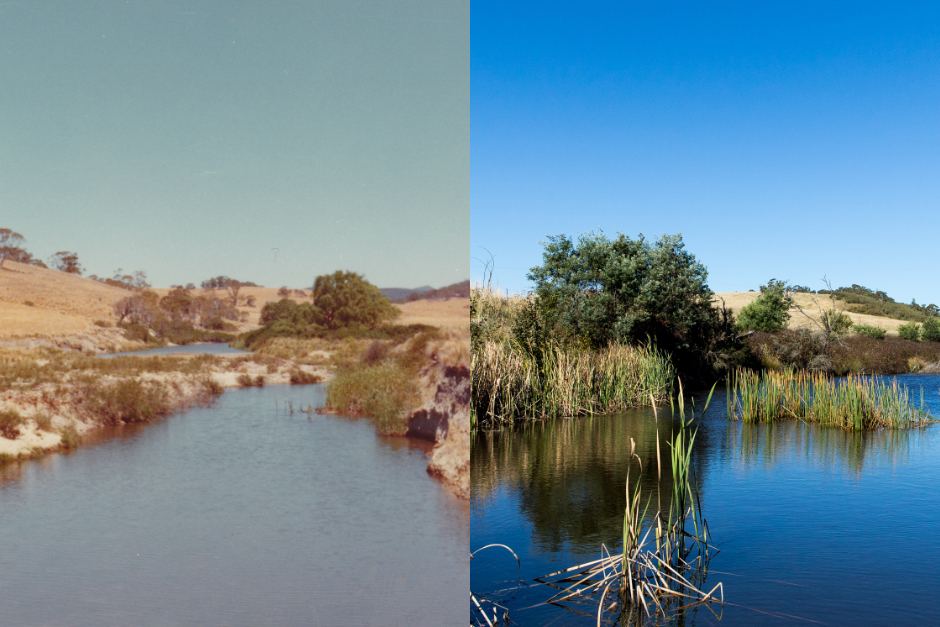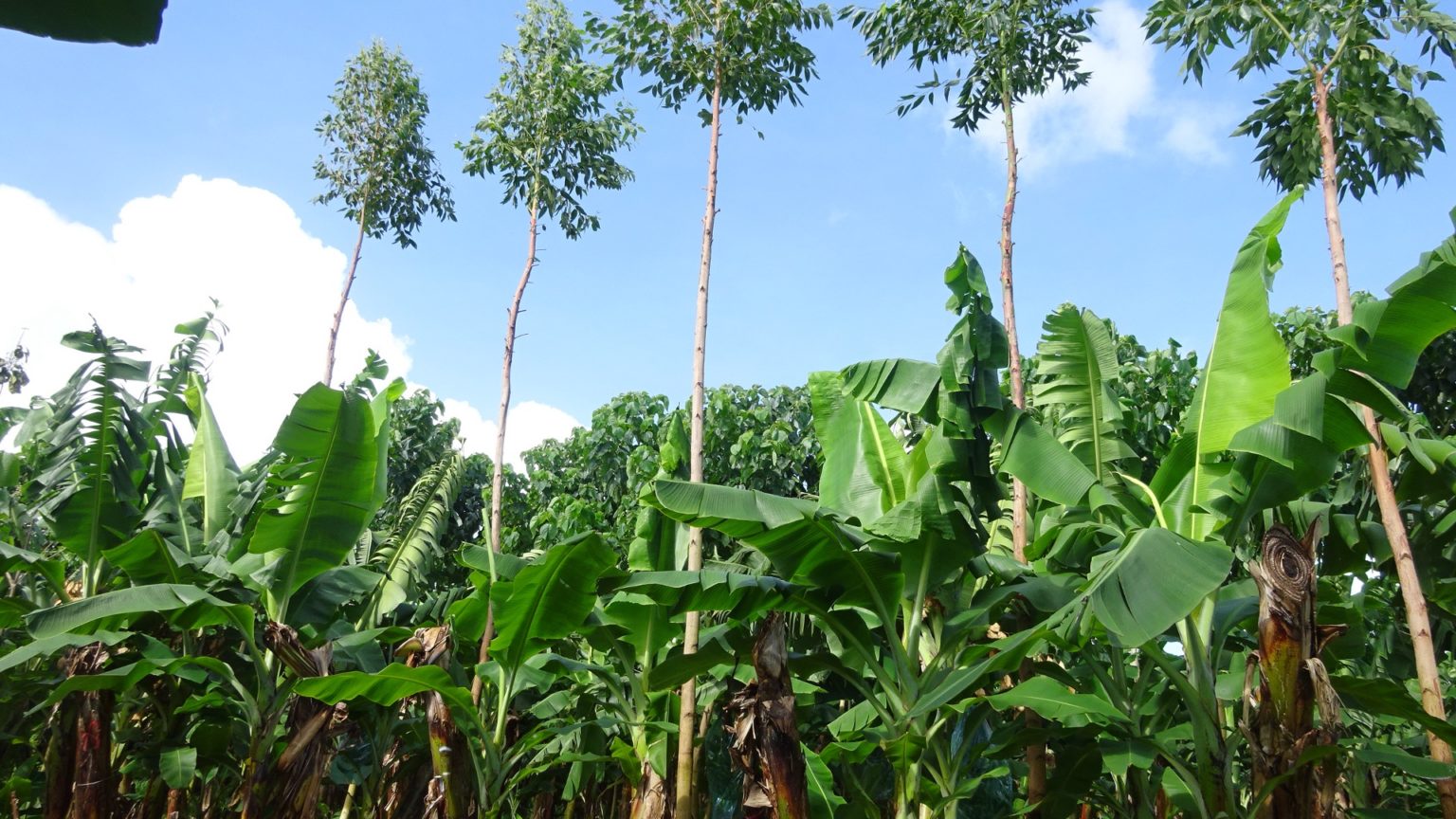A new paradigm requires a new set of values and a new way of looking at the world.
As the conditions of life change and our problems become more complex, we must evolve our perspectives with the times to not only survive… but THRIVE!
The following 5 Frameworks have played a key role in my own conscious evolution in restoring right relationship with the land and people on it (especially myself!).
PS - as I edit this to publish - I realise there are WAY more frameworks that could be added to this list. BUT these 5 are well and truly integrated into my and Grounded's default modus operandi.
PPS - this list specifically focusses on LAND MANAGEMENT and the decision making around it as that is the critical factor in PRODUCING the FOOD which keeps us alive.
1. Permaculture
Developed by Bill Mollison and David Holmgren in Tasmania, Australia in the 1970’s the concept of Permaculture has since proliferated around the world in a decentralised, sometimes seemingly chaotic format.
Despite Bill setting a standard for a 72hr curriculum for an internationally recognised Permaculture Design Course (PDC), adoptees of the practice can range from the most inexperienced and inappropriate, to the most measured and controlled.

It is often said PDC is a great place to start - but a terrible place to finish.
As a synthesis of various concepts, ethics, principles and design techniques from around the world, it is often hard for anyone individual to become a master in the realm, without having obvious shortfalls that can be criticised by others. Beyond the ego-driven agendas, all of this is diversity is actually healthy and allows a constant evolution of what permaculture means and how it is practised.
Despite the variations and many success and big failure horror stories of how it has been (and continues to be) practised around the world, the fundamental ethics, principles and design concepts lay an absolutely solid foundation for upgrading one's perspective into a more holistic way of viewing the world and living more in harmony with nature.
2. Regrarians (& Keyline Scale of Permanence)
Developed by Darren Doherty and based on P.A Yeomans Keyline Scale of Permanence the Regrarians Platform is by far the most pragmatic and integrated approach to broad acre regenerative landscape planning and design.
Darren has spent most of his adult life working as a farm consultant - it all started when he was only just of working age, managing the local fruit and veg shop in Bendigo. Not only did he get to know all the local farmers in the region - people would ask him, “What’s Bob doing to get his carrots looking so good?” or “George had a bumper crop of apples this year what has he done differently to everyone else”.

Darren inevitably became the go-to man to find out the best farming practices simply because he knew who was doing them and the results they were getting.
Darren did his PDC with Bill Mollison in the early 90s and quickly moved into broad-acre farm consulting. At the turn of the millennium, Bill asked Darren to write a handbook on his methodologies because he could see Darren was the best at meeting farmers where they are at and finding regenerative solutions.
It took another 10 years for the Regrarians platform to be officially born - and another 10 years for the handbook to be written (nearly!). But you know what they say - the slower it grows the longer it lasts - and just from the chapters released - it is obvious that this book will be a timeless classic.
While Permaculture provides a fundamental ethical framework and a range of principles for cultivating a permanent culture, The Regrarians Platforms, is the most logically structured and sound methodology for regenerative landscape planning and design.
The Regrarians Platform® Summarised
- CLIMATE –You, Enterprise, Regulations, Risk, Meteorology
- GEOGRAPHY –Landform, Components, Demography, Proximity, Capability, Mapping
- WATER –Storage, Harvesting, Reticulation, Treatment
- ACCESS – Roads, Tracks, Trails, Markets, Utilities, People
- FORESTRY –Flora, Fauna, Fungi, Blocks, Shelter, Savanna, Orchards, Natural
- BUILDINGS – Homes, Sheds, Yards, Portable
- FENCING – Permanent, Electric, Living, Temporary
- SOILS – Planned Grazing, Crops, Minerals, Fertility
- ECONOMY – Analysis, Strategy, Value Chain.
- ENERGY – Photosynthesis, Generation, Storage, Machinery
3.Natural Sequence Farming
Natural Sequence Farming is an understanding of the patterns and processes in the landscape, as observed by Peter Andrews, that seeks to restore natural landscape function.
Natural Sequence Farming is all about restoring degrading systems back to landscapes that function in a productive state for the environment and the farmer.

The focus of NSF is to work with and manage the entire landscape, not just parts of it. Natural Sequence Farming seeks to rehydrate the landscape, rehabilitate and ultimately regenerate it using natural processes. Tarwyn Park is the evolution of Andrews insights and is the family demonstration site and education entity that now trains hundreds of Australian Farmers every year.
The fundamental principles of NSF are:
- Slow The Flow
- Let All Plants Grow
- Careful Where the Animals Go
- To Filter is a Must Know
Check our Tarwyn Park Training for more info.
4. Syntropic Agroforestry
Syntropic Agroforesty was developed by Ernst Gotsch, a Swiss-Brazilian who over the last 30 years has practised and refined a method of farming that produces an abundance of agricultural crops and regenerates degraded ecosystems.

It is based on the fundamental principle of Syntropy - increasing diversity and complexity of life, ecology and ecosystems over time (when the conditions are right).
By creating the right conditions and harnessing the natural force of life that wants to not only survive, but thrive, the practice allows us to create dynamic, successional, and economically viable ecosystems that restore degraded land and soil and increase biodiversity.
By understanding and respecting nature's complex system, Syntropic Farming imitates the natural regeneration of forests and provides a harmonious integration of our food production systems.
The fundamental principles of Syntropic Agriculture are:
- Ground Cover: 100% soil cover 100% of the time either through living or dead organic matter.
- Maximise Photosynthesis: capturing and storing the driving energy of all life - the sun.
- Stacking: the relative placement of plants that are conducive to each others growth
- Succession: The natural evolution of the system over time to complexity
- Management: Continuous and strategic management of the system to support and accelerate the above principles.
5.Holistic Management (& Decision Making)
Holistic Management was originally developed in the 1960s by Alan Savoury. In his efforts to understand wide-spreading desertification and poor farming practices that were causing poverty he developed a framework to better manage land and farming operations that is not only more in sync with natural processes but also meets the needs, goals and values of the farmer.
Whilst there is much complexity and controversy in the framework developed - especially with its focus on broadacre rotational grazing and using domestic animals to reverse desertification, the underlying principles can be applied to any project one is managing.
Due to the complexity of Savoury’s work - a number of evolutions have spun off in order to make the principles more accessible to the layman. By far the best example of this is the work of Dan Palmer from Very Edible Gardens who has refined the underlying principles into an easy-to-understand and accessible framework called Holistic Decision Making.
This process and framework (that I learnt from Javan Bernachavich at the first online Regrarians Training) have been fundamental in me getting really clear on who I am, defining the whole of what I manage and am responsible for, my values and what I want out of life.
This framework helps separate goals from values.
All too often we goal-loving humans end up chasing goal after goal, and when our values are not defined we can often find ourselves unhappy even when we achieve our goals!
Now, having goals is great as it gives us purpose and meaning which is perhaps one of the most important aspects of mental health (that and feeling a part of something larger than ourselves ie community), but by defining our underlying values and the quality of life we wish to live, we can find more happiness while we are in pursuit and achieving our ever-changing and evolving goals.
